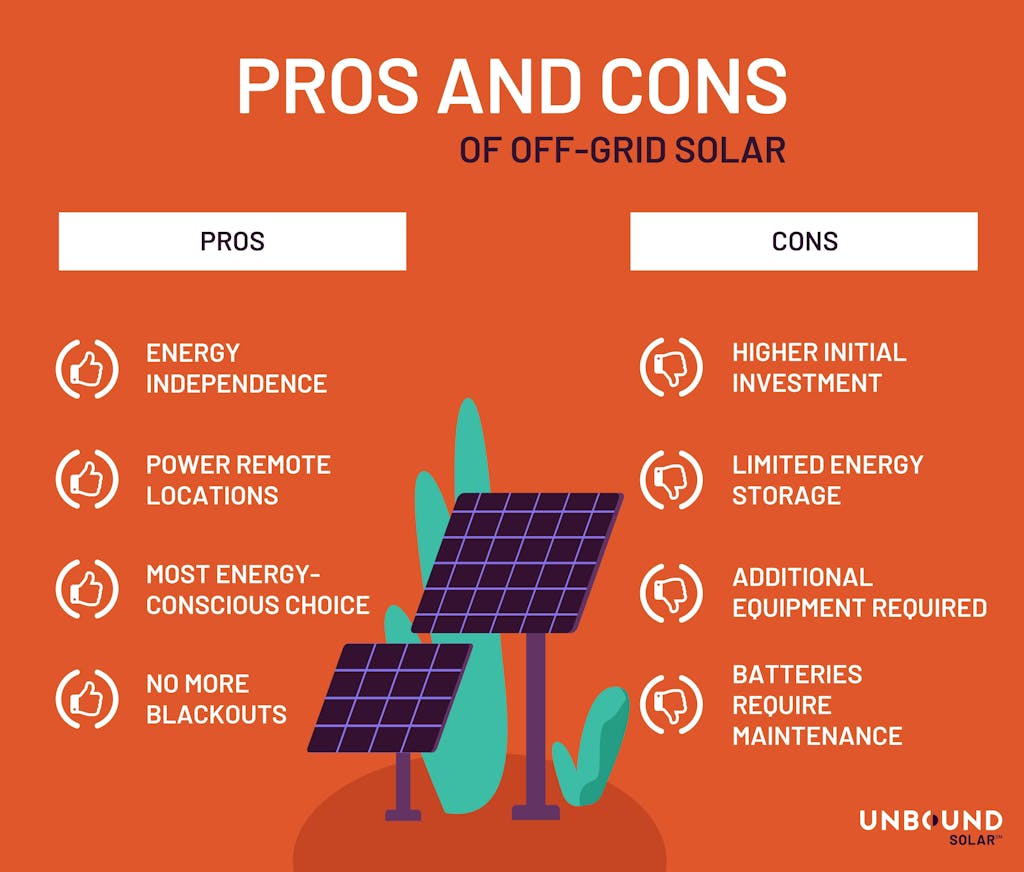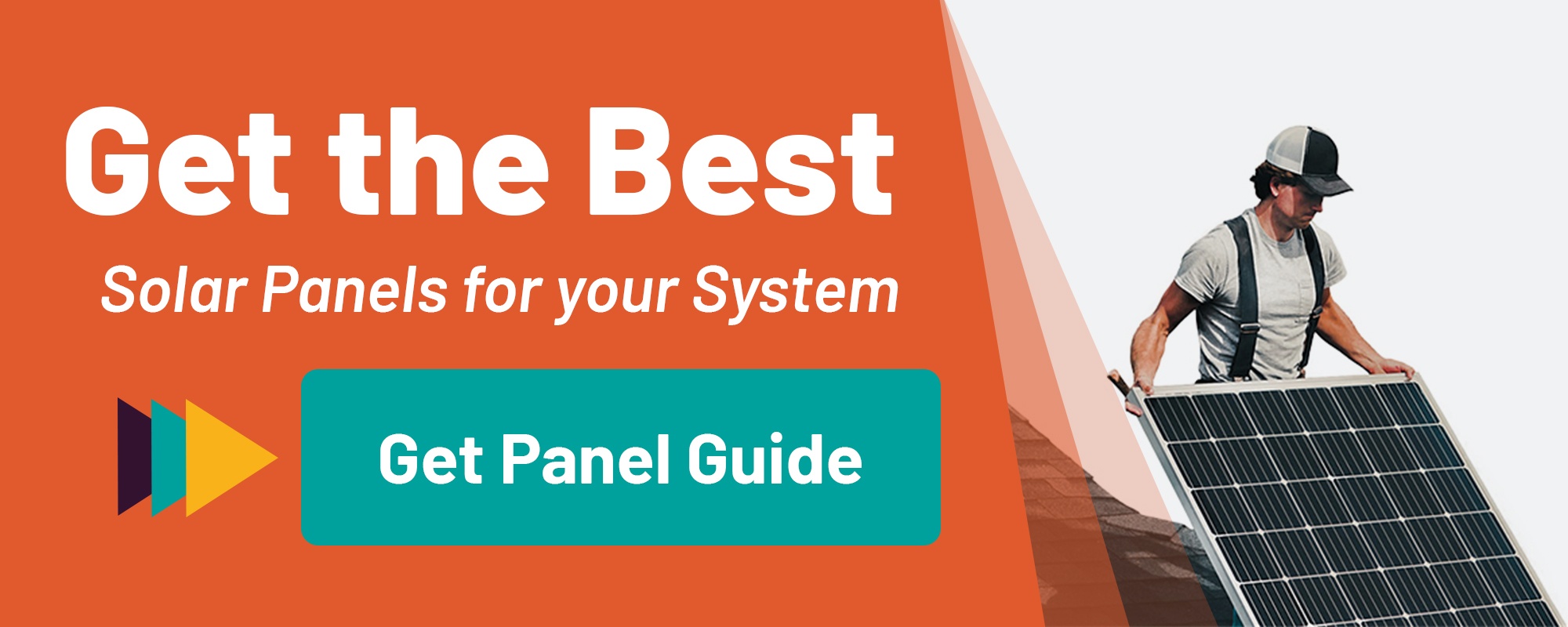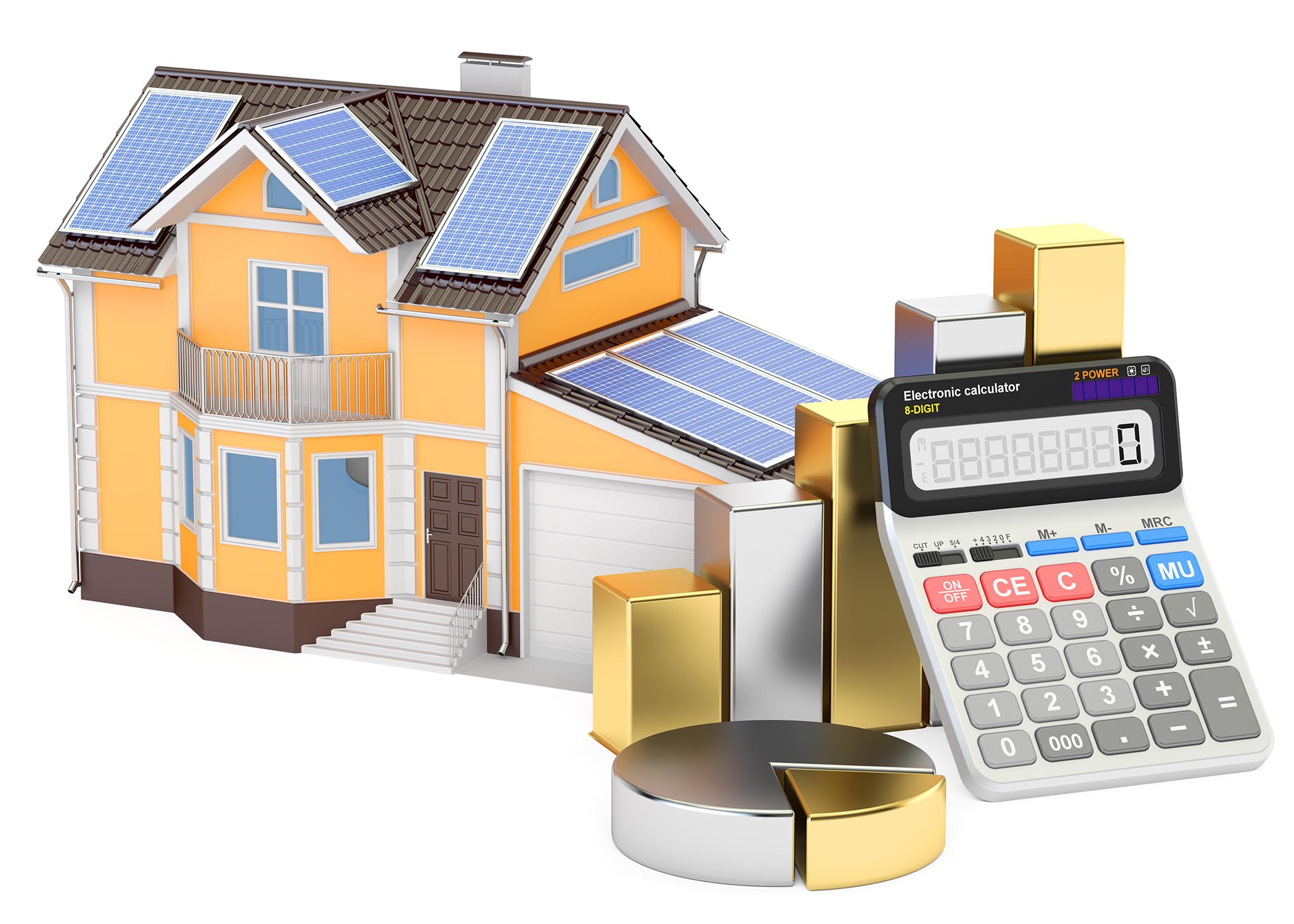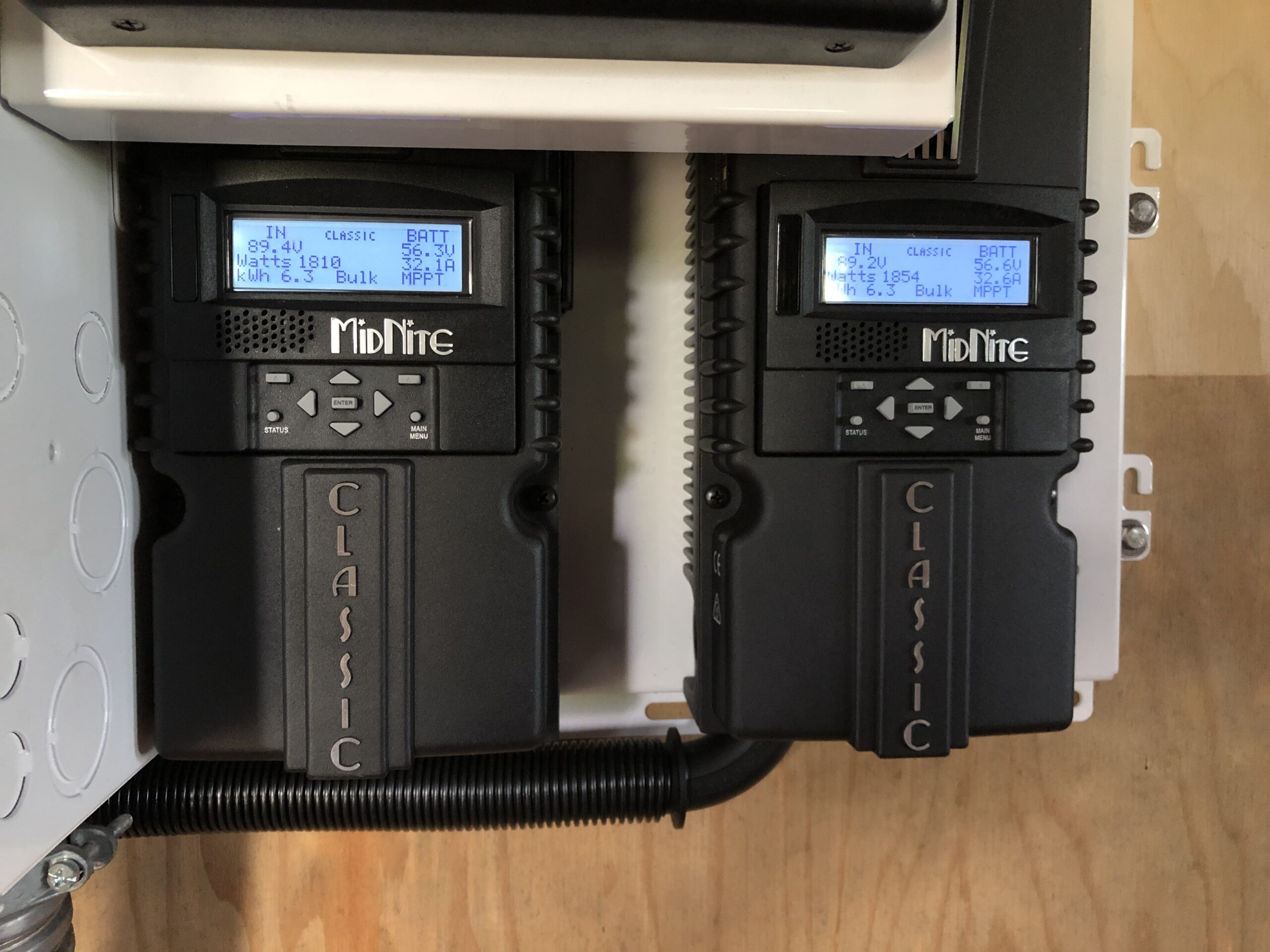Trying to decide if an off-grid solar system is right for you? Whether you’re looking to live more self-sufficiently or need to power a property in a remote location, there are advantages and disadvantages to off-grid solar.
Here, we’ll go over the pros and cons of off-grid solar to help you determine if it’s the right choice for your project.

First, let’s talk about the main difference between off-grid and grid-tied solar systems. While both systems generate power, the difference between these two systems comes down to where the generated energy is stored.
Off-grid solar systems are completely independent from the utility company’s grid. An off-grid system requires the use of a battery bank. The battery bank stores the energy your panels produce.
By comparison, a grid-tied solar system sends the energy you generate into the power grid. You receive a credit for the energy you generate, which can be used at any time. The power your system generates is stored in the power grid and can be distributed to other people in your area.
Grid-tied solar systems with battery backup are also an option. In these systems, your solar system feeds power into the utility grid and stores the excess in a backup battery bank. However, the backup power stored in your battery bank will only be used if power from the utility company goes down.
Before we get into off-grid solar system pros and cons, it’s important to check to see if your state allows off-grid living. Depending on where your project is, going off-grid may not be easy. While some states encourage off-grid living, other states have restrictions that inhibit it. Be sure to find out what states allow you to live off the grid.
Off-Grid Solar Pros:
Energy Independence
Going off-grid offers you complete independence from the utility company. Having total control of your power can be very liberating. You will no longer be subject to the terms and conditions of your local utility company. Rising energy prices will have no effect on you. Being independent from the grid can also be especially beneficial in areas prone to severe weather conditions like hurricanes and tornadoes.
Power Remote Locations
Off-grid solar provides a way to power remote locations where utility power is either unavailable or where it would be too expensive to run power lines. This option allows you to live more self-sufficiently and power vacation homes or cabins located far away from populated areas.
Most Energy-Conscious Choice
Another benefit to going off-grid with your solar project is that it’s the most energy-conscious choice you could make. By generating your own power, you are sourcing at the hyper-local level and lowering the utility company’s environmental impact. Off-grid solar allows you to know exactly what your power consumption looks like. Energy efficiency is encouraged by off-grid solar since your available energy is limited.
No More Blackouts
Maintaining your power during local utility power outages provides a sense of security and relief. Whether planned or impromptu, power outages always pose an inconvenience. Having off-grid solar means your power won’t go out with the rest of the neighborhood’s during a blackout. This is especially helpful if you have medical devices or refrigerated items that rely on uninterrupted electricity.

Off-Grid Solar Cons:
Higher Initial Investment
While going off-grid eliminates your monthly electricity bill, the initial investment is higher for off-grid solar than grid-tied solar. In addition to the materials list for grid-tied solar, off-grid solar requires a battery bank for storing generated energy. These batteries can account for up to 30-40% of the initial cost of an off-grid system. This added expense means paying thousands of dollars more for off-grid solar than if you were to go the grid-tied route. Since off-grid solar systems can’t sell energy back to the grid, you won’t be able to offset your investment down the line.
Limited Energy Storage
Off-grid solar projects have a limited storage capacity that is entirely dependent on the battery bank you purchase. When planning an off-grid solar project, you will have to determine how much energy storage you need. Once you purchase and install your battery bank, you have set the maximum amount of energy storage available to you. Knowing that there is limited energy available in an off-grid solar system means energy efficiency cannot be overlooked. You may need to make some lifestyle changes to lower your energy consumption.
No Backup Energy Source
As opposed to grid-tied solar, off-grid solar lacks the ability to tap into the grid for energy if needed. When cloudy weather persists, there is a chance that you will use all of your stored energy. With an off-grid system, power would not be available until the solar system has a chance to replenish itself.
Batteries Require Maintenance, Have Short Lifespans
Not only are batteries a costly initial investment, they also require maintenance and have short lifespans. Typical batteries will last anywhere between 5-15 years and then you will need to purchase replacements.
Is Off-Grid Solar Right for You?
While off-grid solar has pros and cons, determining if it’s right for you really depends on your project requirements and what you hope to gain by going solar.
If you’re looking for a solar energy system that gives you complete energy independence and can power remote, hard to reach locations, one of these off-grid solar systems could be the right fit.
On the other hand, if a higher initial investment and being completely independent from the utility company might not be ideal for your project, take a look at these grid-tied solar systems. You can still save money on your monthly bills and generate your own energy, but in this case you have a back-up power source, a smaller initial investment and surplus energy that you generate can be sold back to the grid.
Want Us to Weigh In?
Still not sure whether off-grid solar is the right choice? We’re here to help. We can go over the specifics of your situation and help you decide what makes the most sense for your project. Simply schedule a consultation with one of our expert design techs.




